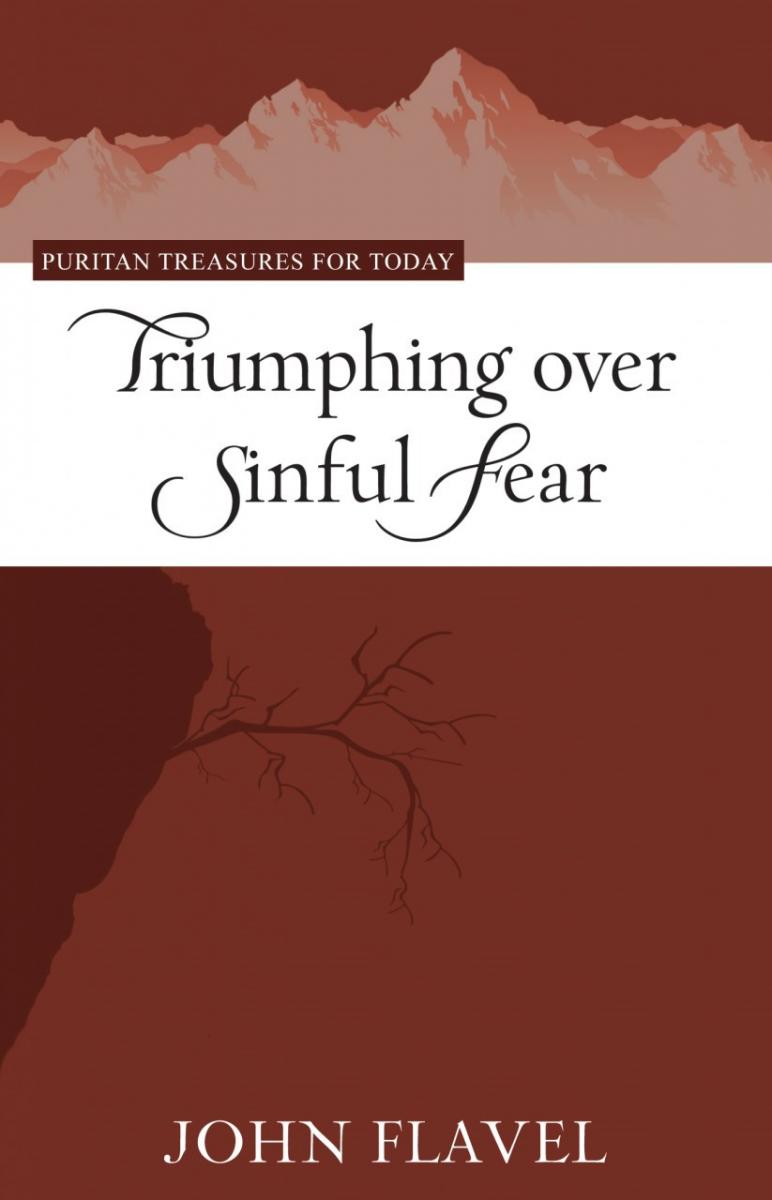Book Review: Triumphing Over Sinful Fear

Mar 8, 2016
 John Flavel, Triumphing Over Sinful Fear (Grand Rapids: Reformation Heritage Books, 2011). 124pp.
John Flavel, Triumphing Over Sinful Fear (Grand Rapids: Reformation Heritage Books, 2011). 124pp. This is easily one of the most important Puritan books that I have read. It is deeply convicting, full of Christ, and loaded with sound pastoral wisdom on a vital, yet neglected topic. Flavel distinguishes between “the fear of the Lord” and sinful fear that results from unbelief. In essence, the fear of the Lord is the single and great remedy to all forms of sinful fear. In making such distinctions, he guides us through the much-neglected topic of how to walk in the fear of the Lord, in a way that is precise, pastorally sensitive, and that can help suffering Christians.
Flavel’s book is precise. Flavel began this work by distinguishing both the fear of the Lord and sinful fear from “natural” fear. While books on fear are a rare find at best today, and distinguishing fear into three or more kinds is even less common, such distinctions prevailed in other Puritans (Owen and Scudder, just to name two) and works on casuistry or Christian ethics. Flavel’s work represents how scholastic distinctions and precision enabled the Puritans to write such gripping and profound practical theology. Lack of precise distinctions in our theology often results in lack of precision or carelessness in expressing our love to Christ.
Flavel’s book is pastorally sensitive. In explaining the category of natural fear, Flavel notes that some people are more fearful by disposition than others are. There are also forms of “natural” fear that are not sinful. Even Christ was subject to “natural” fear as He contemplated the cross (8). “Natural” fear of punishment is also necessary in order to uphold civil order (21). This is a valuable point because it prevents Christians from confusing the humbly submissive fear of the Lord to a forced Stoicism that borders denying our humanity. After clearing away such confusion and establishing the parameters of the question, Flavel set forth the causes of sinful fear (chapter 4), its effects (chapter 5), its remedies (chapter 6), followed by answers to some objections (chapter 7).
Flavel’s book helps suffering Christians. At root, the author argued that ignorance of the provisions of the covenant of grace was the primary cause of sinful fear (31). The corollary to this is unbelief in God’s promises (35). As a result, “carnal fear is the very root of apostasy” (56). From this point on, Flavel turned his primary attention to sinful fear that results from persecution. Even good people may be overwhelmed and fall in such circumstances (68). He sought to counter this temptation through a series of useful meditations such as the following: “To trust in God in part and the creature in part is to put one foot upon the rock and the other on quicksand” (83). “No death is more honorable to God or comfortable to you as a violent death for Christ” (89). “An assured Christian is never a coward in suffering” (94). “Although a natural death has less horror, a violent death for Christ has more honor” (96). “A natural death in Christ is safe for us, but a violent death for Christ is beneficial for others” (97). “It is a great mistake to think that the strength of a natural constitution can carry anyone through suffering for Christ” (114). “In extraordinary trials we can expect extraordinary assistance” (117).
Ministers often attest to the fact that there is sometimes a peculiar blessing of the Holy Spirit upon their preaching. When this happens, both the content and the form of delivery are blessed beyond the natural gifts of the pastor. I cannot help but think that this work represented one of those moments in Flavel’s ministry. Sometimes the profit that we receive from a book depends as much upon our own present spiritual condition as much as upon the inherent value of the material. This volume presents a clarion call to our present generation in which persecution is subtle and not recognized easily. It was edited and prepared for the average person in the pew and it fulfills its purpose abundantly.





